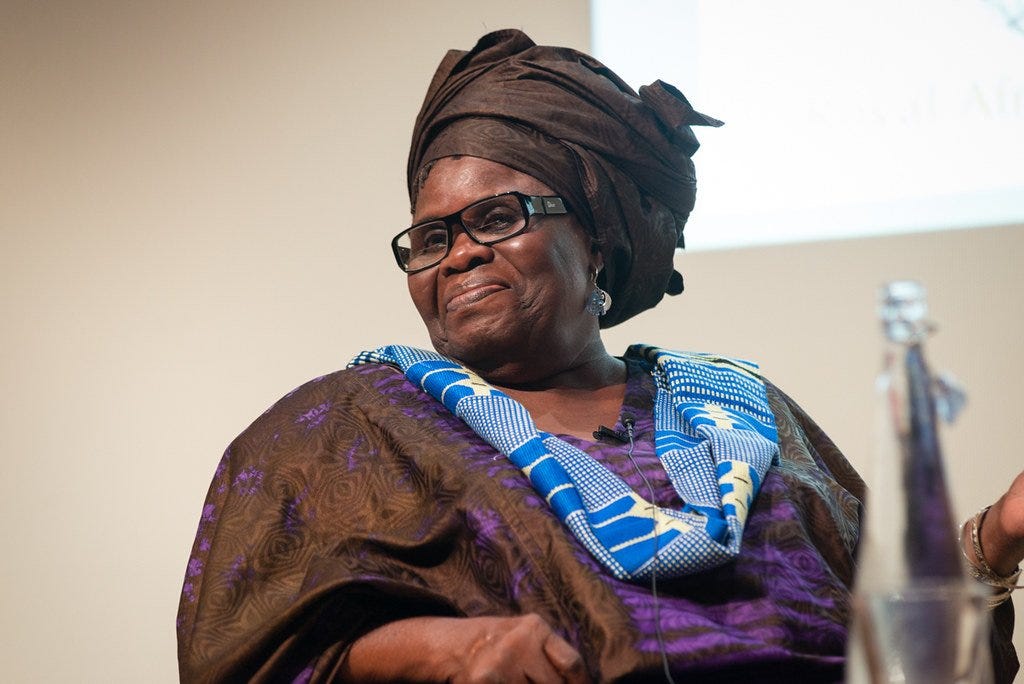A Reflection
I had coffee with someone in my professional network earlier this week. During our chat, I was asked about my value proposition and who my target market was. Articulating these two things has been a challenge for me since I launched my business five years ago. Like many of you, I love mixing my work up. I love working with many different kinds of people across various industries.
This time, I said I'm still figuring that out.
Usually, when someone asks me what I do, my response changes depending on who I'm speaking to or which way the wind is blowing.
My coffee partner responded similarly, saying they're still figuring it out as well. It felt good to find someone else in my field navigating the same thing.
That conversation stayed with me throughout the rest of this week until yesterday, when it finally hit home that I would be well served to narrow my focus. This allows me to create content that speaks to the right audience and resonates with them. It also makes it easier to reach the right people and build relationships.
This resolve to narrow my focus wasn't a big revelation regarding understanding the value of defining your niche. I preach this to people who have participated in my business planning workshops. And I've been working through my value proposition and target market with my business coach over the past year.
What was different (and interesting) is that the "knowing" finally landed.
I am reminded that wisdom isn't just about acquiring knowledge but about truly understanding and internalizing it. As Chip Conley said, "Wisdom comes with self-reflection and experience." It's about taking action and living out the lessons we've learned to make a meaningful impact in our businesses, our lives, and the world.
That doesn't mean I won't engage in work that doesn't perfectly align with my target market. I love variety and you’ve likely heard the old adage, “Variety is the spice of life!” I often take on tasks that challenge me and help me grow professionally. I believe that no matter what I do, I can learn something from it and apply it to my target market. Taking on diverse work also helps me stay creative and motivated.
It simply means I am getting closer to knowing who to tailor my messaging to. This allows me to create content that speaks to and resonates with the right audience. It helps me build trust and credibility with my target market.
One Piece of Business Advice
Writing down 4-8 things learned each week (or month, or quarter) is a powerful practice that can help you become a sharper leader.

When you intentionally capture your learnings, you not only reflect on your growth, but you also refine strategies, and continuously improve your business and leadership skills.
What Do You Stand to Gain?
Reflection and Evaluation: Writing down your learnings invites you to reflect on your experiences and evaluate the lessons learned. This practice allows you to better understand what worked well and what can be improved upon.
Memory Retention: Writing down your learnings helps commit them to memory. By physically writing them down, you are forming new neural pathways in your brain.
Organization and Prioritization: You are building a centralized repository to organize and prioritize your learnings. This helps you identify vital insights and prioritize their implementation in your work.
Growth Mindset: Writing down your learnings cultivates a growth mindset. Acknowledging your growth and development reinforces a positive mindset and encourages continuous learning.
Creating space to review what you've learned and reflecting on your progress will help you become a better business leader and decision-maker. Let me know if you have a journalling practice and what has worked for you!
One Mastery Tip
Pivotal moments mark significant transitions as we move through life. These transitions can challenge us and force us to adapt and evolve. While wisdom is often associated with age, it’s important to recognize that it doesn't always come with a specific number. We become wise through self-reflection and the experiences we encounter along the way (if we choose to embrace a growth mindset.)
When we experience life transitions, we often face choices that can shape our future. These moments offer us the opportunity to grow and learn. However, if we do not make sense of the lessons presented, we can miss out on the valuable wisdom that comes with age.
Wisdom is not just the accumulation of knowledge but an art of distillation.
It is the ability to take what we have learned and meaningfully apply it to our lives. Without the process of self-reflection and introspection, our knowledge may remain stagnant, and we may not truly become wise.
The world is changing rapidly, and change and transition have become more prevalent than ever before. It is now estimated that the average person may have as many as 10-12 or more careers during their lifetime.
The difference between knowledge and wisdom lies in our ability to apply what we have learned.
We need to take the time to process and make sense of this knowledge to take advantage of the opportunity to become wiser.
Think of a young person who exhibits wisdom beyond their years. People like this often recognize the importance of self-reflection and actively seek to make sense of their experiences.
As we age, it is natural to ponder what we have learned and have yet to learn. Reflecting on the past and considering what we would regret not learning or doing now can help us prioritize our personal growth.
A great question to ask yourself is, "What do you know now that you wish you had learned or done ten years ago?"
Or, said another way, "Ten years from now, what will you regret if you don't learn it or do it now?"
These questions can guide us in making informed decisions that foster wisdom and growth.
Today's Quote
"The best way to sharpen a knife is not to whet one side of it only. And neither can you solve a riddle by considering only one end of it."

One Resource
I love learning. One of the ways I feed my mind is to read The Conversation. This resource is a website and newsletter that act as an independent source of news and views, from the academic and research community, for our enjoyment and growth.
One of the courses I took in my Master’s program was Misinformation and Society. It was a hefty course, but in it I learned how to spot fake news, decipher between misinformation, disinformation, propaganda and related types of information to be a more well-rounded thinker.
The Conversation is a source that I feel is reputable and has helped me develop a better understanding of what’s happening in our world.



Great advice